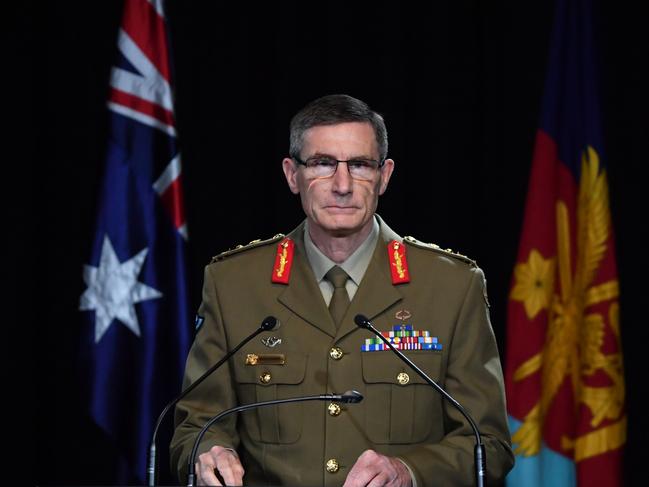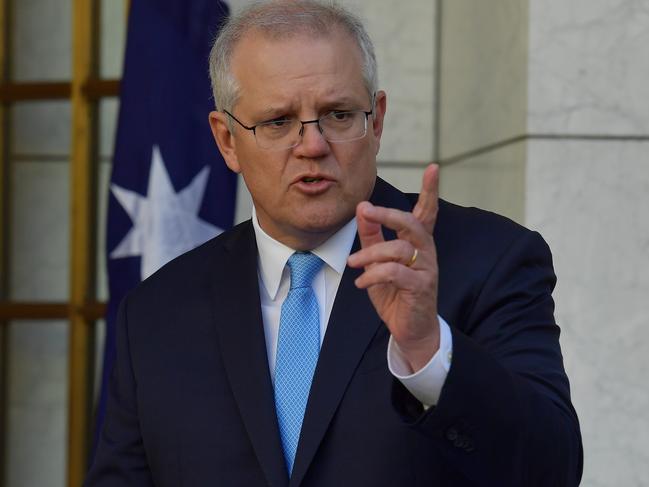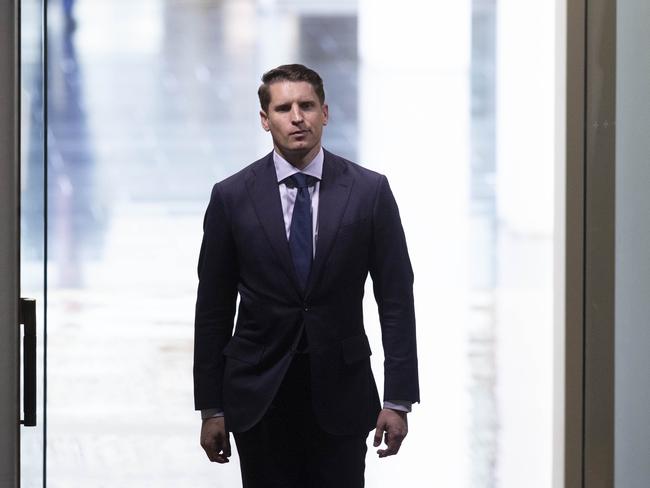Simmering unrest behind Brereton report into alleged Australian war crimes in Afghanistan
The findings of an inquiry into alleged war crimes by Aussie soldiers shocked the nation. This is what happened behind the scenes after it was released.
National
Don't miss out on the headlines from National. Followed categories will be added to My News.
For more than four years, judge Paul Brereton led a groundbreaking inquiry which found credible evidence 25 Australian Special Forces soldiers were involved in the murders of 39 Afghani civilians and prisoners.
It took just over four weeks for the Department of Defence and the Government to stuff it up.
Since the inquiry report was released, Defence Minister Senator Linda Reynolds has, according to colleagues, been missing in action, is seemingly overwhelmed by the task and is bruised by a run-in with Prime Minister Scott Morrison.
Chief of the Australian Defence Force General Angus Campbell has also been virtually AWOL on the issue in recent weeks, after three early media interviews about the report, all with the ABC. He also published one statement online.
He is apparently furious after being rolled by Mr Morrison over his pledge to revoke Meritorious Unit Citations from 3000 Special Forces members.
General Campbell was also rolled by Senator Reynolds over his plans to hold a small, advance briefing for several journalists ahead of the release of the Brereton report.

The Government’s initial inability to find someone to fill the role of Special Investigator meant a five-week hiatus emerged which allowed peripheral players such as ex-commando Heston Russell and independent Senator Jacqui Lambie to own the airways.
This saw the debate become a side-argument about medals, what constitutes the “fog of war’’ and an attack on the Government.
It was left to Perth MP Andrew Hastie, who served with the Special Air Service for six years before being elected to Parliament, to respond to the pair. He stepped out onto Sky News this week to say Mr Russell had never served a day in his life with the SAS, and was most certainly not a spokesman for them.
The Defence decision to release the 2016 report by sociologist Samantha Crompvoets in the binder of documents attached to the Brereton report has also proved problematic.
Dr Crompvoets, called in to examine the deep cultural problems within some Special Forces troops, noted she had been told of an incident in which soldiers slit the throats of two 14-year-old boys.
The same allegation is not made (at least publicly) by Justice Brereton, but it was this claim Chinese diplomats seized on to claim the report had found Australian soldiers had killed children.

One MP said the Government had known for years the Brereton report was coming, had some idea of what it contained, and should not have been so unprepared.
“It’s become a giant joke,’ another appalled MP told News Corp of the Government’s handling of the response.
“Where’s Linda?’’ a third asked.
“She has got to step up and show some political leadership on this.’’
Senator Reynolds declined repeated requests from News Corp for interviews over the past five weeks.
She is one of the few people who had read the entire, unredacted report into the alleged war crimes, and she said it made her feel physically ill.
But as public sentiment turned against the inquiry process, she mainly declined the opportunity to publicly argue the case for why it was important.
After brief comments at a business breakfast in Perth the morning after General Campbell released the report on November 19, she disappeared for days.
When she finally did stick her head up last week and – entirely accurately – noted that what Justice Brereton had found was: “39 incidents of credible evidence of murder. Not fog of war, murder,’’ she was attacked by Sydney radio broadcaster Ray Hadley 2GB.

The Prime Minister appeared on the Hadley show the next day, and said he was using careful language and “understood the point’’ that people were concerned about the murder comments.
Senator Reynolds recognised the implicit rebuke, and hasn’t made a public comment since.
Her supporters appeared panicked she was going to get dumped in Friday’s Cabinet reshuffle and were making calls to test the waters.
This was a nonsense – the PM could never sack her after having made such a big deal of appointing a woman and former army brigadier to the role less than two years ago. And it would send a terrible message that the Government was walking away from the Brereton report, which it is not.
Interestingly, Mr Hastie was promoted to the role of Assistant Defence Minister in Friday’s Cabinet reshuffle, a move which will be welcomed by the military and veterans’ communities, and will give the Government a more forceful advocate for the Brereton process.
Justice Brereton referred 19 Special Forces soldiers to police for investigation over incidents which included claims of “bloodings’’, where rookie soldiers were ordered to execute prisoners to initiate them for their first kill.
The allegations include bound prisoners held in compounds being taken away and shot at close range in the head. Justice Brereton specifically stated none of the incidents occurred in the heat of battle or fog of war.
Labor is showing bipartisan support, with Shadow Defence Minister Richard Marles vowing to give the Government space to bed the process down.

But Government MPs, many of whom are getting irate calls from the military community at their electorate offices, are spooked.
It had started well. Mr Morrison’s and Senator Reynolds’ press conference on November 12 where they announced the oversight panel and Special Investigator was direct, transparent, and warned Australians to prepare themselves for “brutal truths.’’
Gen. Campbell, stymied by the minister’s office after they got wind of his plans to hold an advance briefing for a few journalists, waited a week then released the report, and said he would accept all 143 recommendations. That’s where the problems started to emerge.
The recommendations included revoking the Meritorious Unit Citation from around 3000 soldiers who had served in Afghanistan, many of them bravely and without controversy.
The issue came into sharp relief when Felix Solomon Shir, the father of commando Gregory Shir, killed by a Taliban rocket in 2009, wrote to Gen. Campbell and said if he wanted to revoke his son’s citation, he could “collect it himself from my son’s gravestone.’’
Mr Morrison contradicted Gen. Campbell publicly, saying he understood no decision had been made. One source said Gen. Campbell had to be “dragged kicking and screaming’’ to see the PM’s point of view.
The announcement this week that esteemed former Appeals Court judge and Commonwealth DPP Mark Weinberg would be the Special Investigator was the circuit breaker the Government needed.
Now, it remains to be seen which politicians will show the same bravery the whistleblowers to the Brereton inquiry did.





